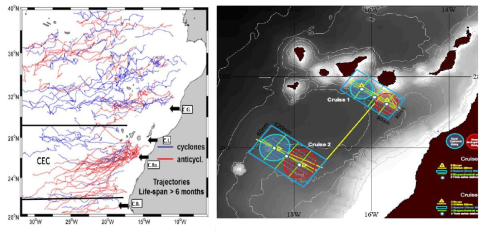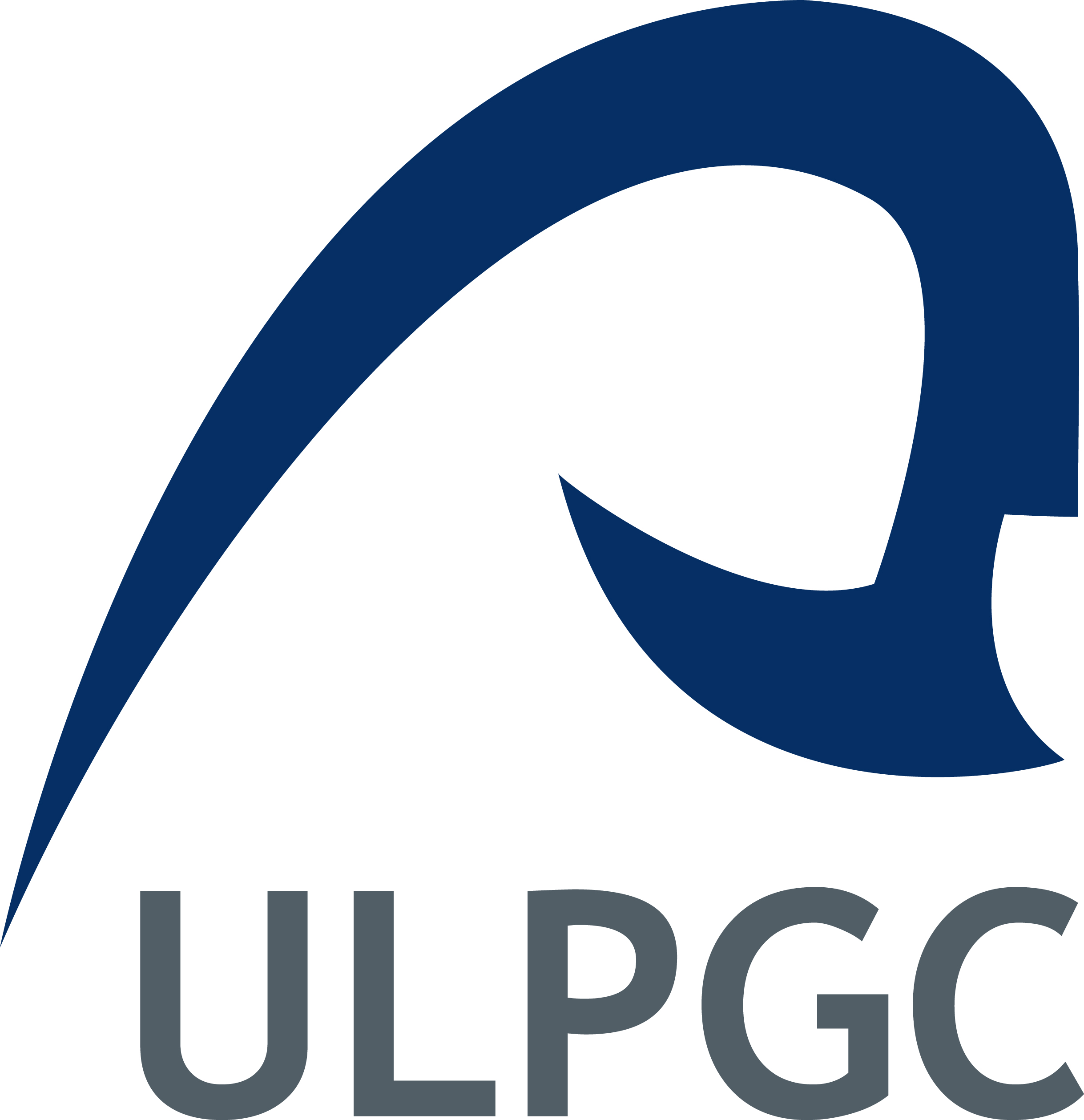Ph.D. Program in Oceanography and Global Change at the Canary Islands, Spain
Submitted by ignacio on Mon, 05/23/2022 - 12:37

The project e-Impact aims at quantifying the contribution of sub-mesoscale processes associated with mesoscale cyclonic and anticyclonic eddies on the biological carbon pump in the Canary Eddy Corridor (North Atlantic Subtropical gyre). Mesoscale eddies are self-rotating coherent water bodies that can propagate long distances through the oceans, in many cases forming westward propagating eddy corridors. Recently, it has been suggested that eddy subduction at the sub-mesoscale (Θ,1-10km) is one of the main mechanisms of the biological pump, driving the transport and sequestration of dissolved and suspended organic carbon into the deep waters. In particular we will address their imprint on the structure and metabolism of microbial communities, and their interaction with the dynamics of organic matter. We will also address how physical processes at lowscale resolution drive the vertical transport and sequestration of organic matter. In order to achieve these goals, we will carry out two oceanographic cruises to study the evolution of an eddy pair (cyclonic and anticyclonic), during two periods of their life history: one in August 2022, right after being generated at the south of Gran Canaria, and the other three-four months later (November 2022), after being spun down along the Eddy Corridor. We will perform an elemental, optic, and molecular characterization of the dissolved and particulate organic matter. We will also study the biomass, activity, structure and molecular diversity of the prokaryotic community to determine its relationship with the dynamics of organic matter. Until the fieldwork is carried out, we have been compiling published studies on the effects of island-generated (and other mesoscale) eddies on the biogeochemistry of organic matter and the biology of prokaryotic communities.




Add new comment